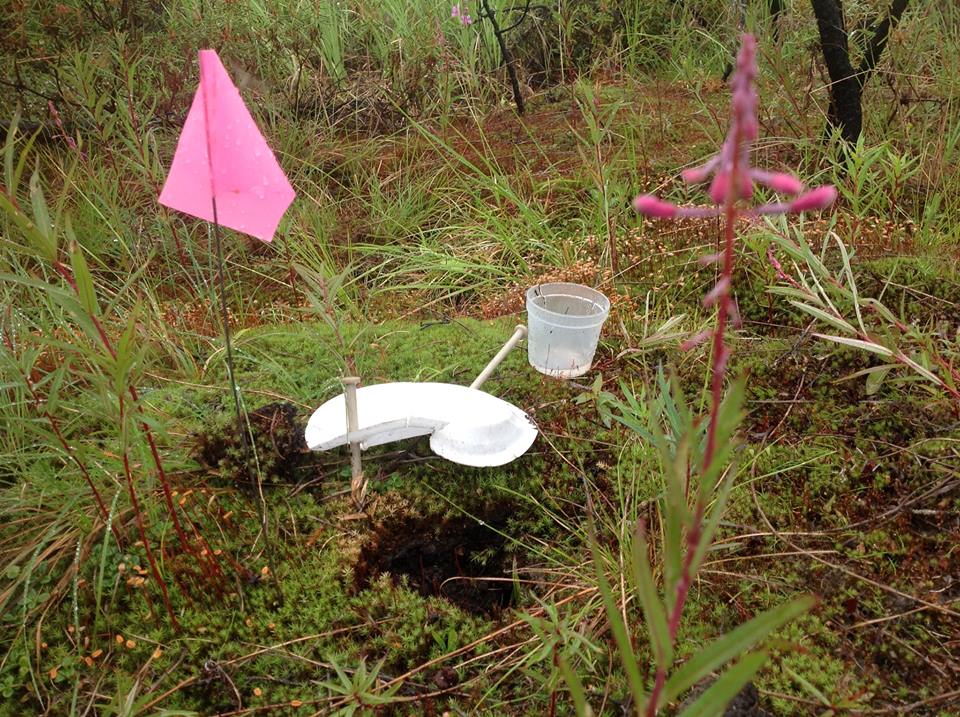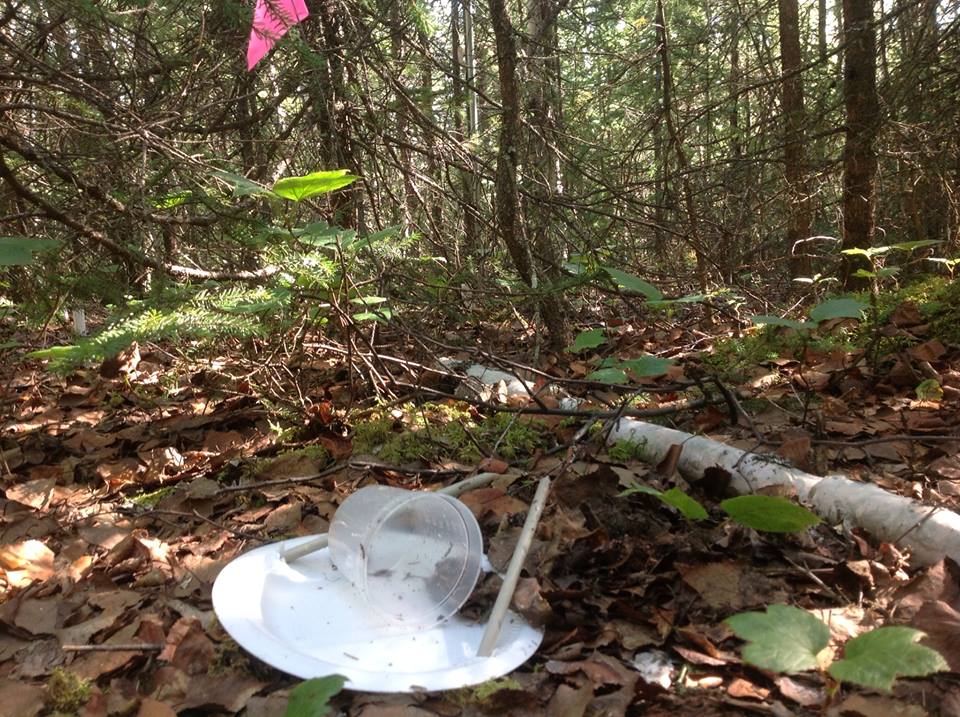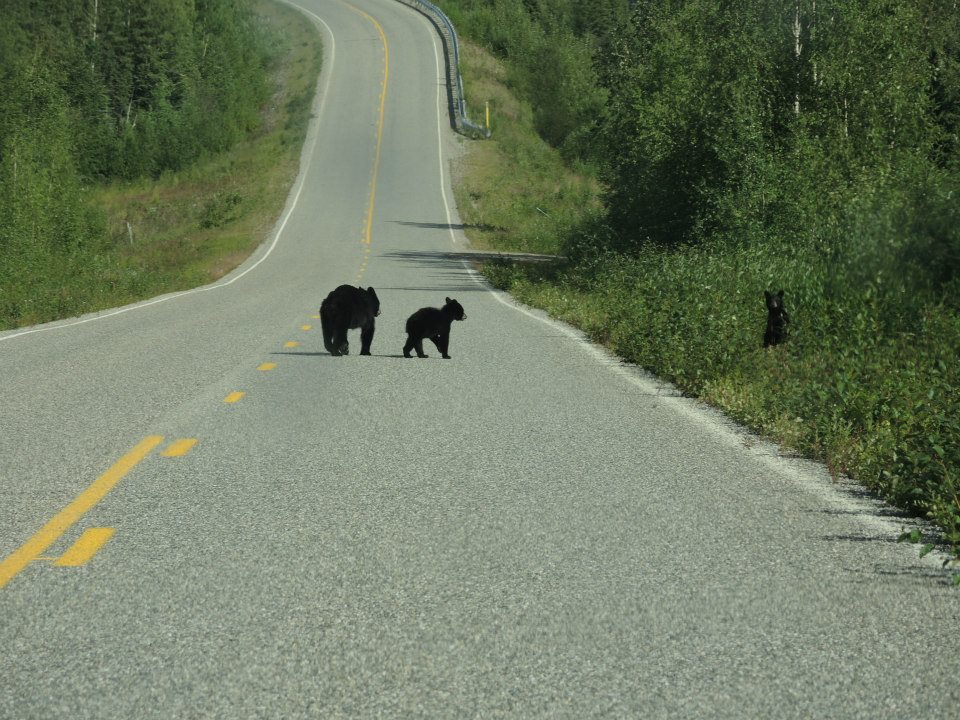
The bears pull my traps out of the ground and then eat and/or spill the contents before tossing the cups aside. (Normally the white plate would be held over the pitfall trap with the plastic nails to act as a rain cover).
Credit: Alexandria Wenninger
By Alexandria Wenninger of the BNZ LTER
Being a field ecologist is a really fun job, where a day at the office could mean anything from tromping through a peat bog in muck boots, scuba diving off the coast, climbing trees, or hiking Antarctica. While the biggest obstacles we face at our indoor offices are usually running out of printer paper or forgetting to refill the coffee pot, the occupational hazards of our outdoor offices are often unexpected and bizarre.
I study ants and parasitoid wasps in Alaska’s boreal forest, and when I first started my work I spent a lot of time designing the perfect pitfall trap to collect them (pitfall traps are small containers placed holes in the ground so that insects walking by fall in and can’t escape). I thought I had everything figured out; what I had not anticipated was black bears ruining my traps.
Black bears, in my experience, are driven by curiosity and hunger. My traps are new and exciting to them, and as an added bonus, the traps are filled with dead insects, delicious!

Another example of what my pitfall traps look like after a bear encounter.
Credit: Alexandria Wenninger
Surprisingly the story is not over yet; I thought I was smart and figured I could make the traps taste so terrible that the bears would either leave them alone entirely or would have one taste and never touch them again. I needed something serious to do this task, so I employed “the bitterest substance known to man”, denatonium benzoate (https://en.wikipedia.org/wiki/Denatonium).
Results? After accidental exposure I can safely say that the denatonium benzoate is plenty disgusting, but it turns out that some bears really don’t care! It does seem like I lose less traps to bears now, but whether it is due to the bitter substance or coincidence I don’t know.
Bears: 1, Field Ecologist: 0.

Mom and two cubs crossing the road near one of my field sites.
Credit: Alexandria Wenninger
Alexandria Wenninger is a graduate student at the University of Alaska-Fairbanks studying post-fire succession of ant and parasitoid wasp communities in the Bonanza Creek LTER site network.











